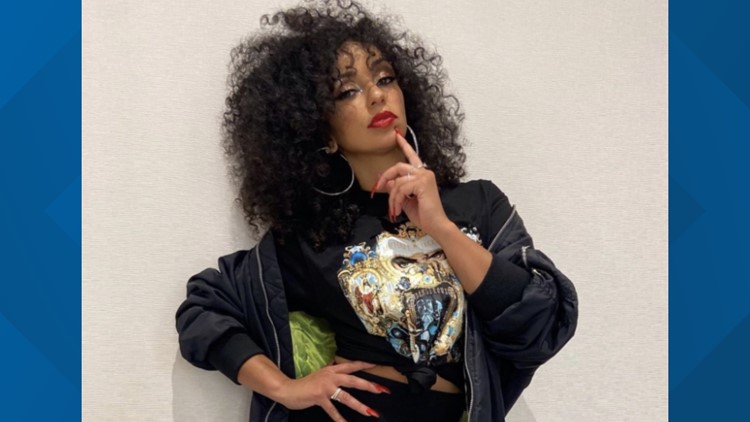ST. LOUIS — 90s R&B singer Mya will be performing at this year’s Frizz Fest in September at Tower Grove Park. The hit singer will perform all her greatest hits, including her first single ‘It’s All About Me’, ‘My Love Is Like Wo’, and ‘Ex Factor’--- all while participating in celebrating Black hair and beauty from that variety of local vendors that will be at the festival.
Her talk with the St. Louis American covered self-care, the importance of honoring textured hair, and the insecurities she had as a young teen.
The Frizz Fest was started in 2017 by St. Louis native Leslie Hughes, The fest falls under her non-profit organization Frizzy By Nature. The non-profit encourages self-love and inspires confidence among women through events and by providing resources that support them on their journey. Frizz Fest was created to provide a space where black women and black people feel safe, seen, and celebrated as their natural selves.
St. Louis American
Why is being a part of the Frizz Festival which celebrates Black hair care and beauty so important to you?
Mya
It is very important to celebrate the texture we are born with. We have a plethora of styles, colors, and textures. And we express ourselves through our hair in our culture, it’s a beauty that reflects our versatility and essence as a people. We should always celebrate our crown.
St. Louis American
What experience did you have growing up that made you feel insecure about your hair, and how did you overcome that?
Mya
During pageants and competitions I participated in I experienced odd looks, I was teased and bullied–I knew I was different and not like the other girls. Growing up in a society we are bombarded with constructs of underrepresented standards of beauty that don’t align with what most people look like. And sometimes you question yourself if you belong. In my adult years, I began to view beauty standards differently, I began to wonder why they were so acceptable. I had to deprogram myself and learn to embrace my natural beauty. I started to focus more on the inside rather than the outside.
The St. Louis American
What is your hair care routine?
Mya
I’m literally always trying to figure it out, time is a factor when it comes to my hair. I use protective styles or I’ll do a twist out. On my off days, I deep condition my hair to prevent breakage, or I’ll do a scalp treatment using tea tree oil. And I take my satin pillowcase when I travel. During the pandemic, I used a lot of melted shea butter and Botana oil. Now I think I might try using the rice water trend for hair growth, it’s an ever-evolving learning curve to see what works—which is why I’m so excited to see and connect with all the vendors at the festival.
St. Louis American
From your perspective how would you make sure all hair was celebrated in an equitable way?
Mya
In my projects, books, films, and music videos—my characters represent a wide array of diversity ranging from hair textures to complexions and personalities. The full essence and scope of people and it’s limitless. We come in all shapes, sizes, and colors and we are beautiful in our own individuality. The world would be pretty boring if we were all identical and the same. We are divinely created by the Creator and no mistakes were made.
Sometimes we don’t notice the damage of under-representation can do to someone, it can play a big part in how we feel about ourselves. Everyone should feel loved and celebrated.
St. Louis American
If you could go back to talk to your preteen self, what would you tell young Mya?
Mya
I would tell her not to focus on validation to fit in, I would break down all superficiality. I would dispel the idea of ‘good hair’ and ‘bad hair’---I would tell the science behind hair and let her know that hair back then was to regulate our body temperature, it wasn’t for vanity. I used to think my hair was so unruly and wild, I should have encouraged her to be more like my hair. Wild and free.
St. Louis American
What are your thoughts on the Crown Act?
Mya
It’s unfair that our hair needs a policy to be accepted, our hair shouldn’t have to be forced to change—it’s disrespectful to beg for acceptance. It’s the system that we need to change the unrealistic standards of beauty.
Ashley Winters is a Report for America reporter for the St. Louis American.


